Inter‑regional forum on OCOP: Advancing dynamic, distinctive agriculture
Co-organised by the Ministry of Agriculture and Environment and the UN Food and Agriculture Organisation (FAO), the forum highlights Vietnam’s growing role as a global knowledge hub in rural development and local value chains.
Vietnam is hosting the inter‑regional high‑level forum on the OCOP (One Commune - One Product) model from July 15–16, bringing together 14 African ministers.
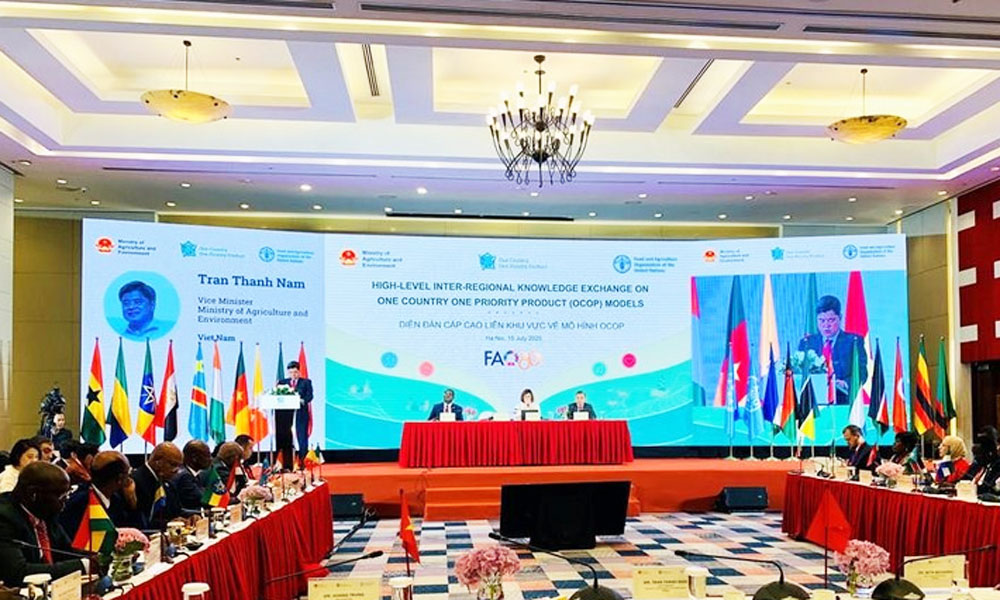 |
|
An overview of the forum. |
Co-organised by the Ministry of Agriculture and Environment and the UN Food and Agriculture Organisation (FAO), the forum highlights Vietnam’s growing role as a global knowledge hub in rural development and local value chains.
Launched in mid-2018, OCOP is a rural economic initiative that leverages local resources —knowledge, labour, craftsmanship, and culture — to enhance income and build sustainable, community-driven value chains. It contributes to the broader National Target Programme on New-Style Rural Building of Vietnam.
Opening the forum, Deputy Minister of Agriculture and Environment Tran Thanh Nam noted that agriculture remains a cornerstone of Vietnam’s economy, with over 60% of the population in rural areas.
Since the “Doi Moi” (Renewal) cause in 1986, Vietnam has made significant progress in food security, poverty reduction, and agricultural exports.
Agriculture now contributes around 12% of GDP and maintained 3.3% growth in 2024, with exports reaching 62.5 billion USD. In the first half of 2025, the sector grew by 3.84%, with exports up 15% year-on-year to 33.84 billion USD, he said.
Vietnam is restructuring its agriculture sector towards to enhance added value and promote sustainable development, taking into account emerging factors, such as trade liberalisation, climate change, smart agriculture and the control of food loss and waste.
It aims to align with the UN Food Systems Summit goals by pursuing transparency, innovation, and inclusivity, targeting over 4% annual agricultural growth to support broader economic goals.
The OCOP model, officially launched under Decision 490/QD-TTg, focuses on turning local specialities, including traditional crafts and folklore, into marketable, high-quality products.
It promotes collaboration among the state, businesses, cooperatives, and communities on quality control, branding, capacity building and market access.
According to Nguyen Do Anh Tuan, Director of the Department for International Cooperation under the Ministry of Agriculture and Environment, over 16,800 OCOP products have achieved three-star ratings or higher. More than 60% of participants reported an average 18% annual revenue increase.
OCOP has generated millions of jobs and helped revitalise rural livelihoods by empowering communities to preserve cultural identity while promoting economic growth. It aligns with FAO’s “Four Betters” - better production, nutrition, environment and life.
At the forum, Deputy Minister Nam proposed strengthening South–South cooperation by sharing policy frameworks, market insights, and technical training.
He stressed the importance of empowering vulnerable groups, such as women, ethnic minorities, the elderly, and persons with disabilities, and called for international support to scale up OCOP globally through innovative public–private–community partnerships.
FAO Deputy Director-General Beth Bechdol highlighted the importance of OCOP in a global food system increasingly reliant on limited crop and livestock species. She praised the model for enhancing food security, diversifying production, and building climate resilience.
FAO’s Assistant Director-General for Asia-Pacific, Alue Dohong, added that Vietnam’s OCOP inspired FAO’s global initiative, now shaping the “One Country - One Priority Product” approach.
He underscored the need for a global OCOP network engaging governments, farmers, researchers, and businesses, and pledged FAO’s technical support for scaling the model worldwide.
On July 16, delegates are scheduled to visit OCOP models in Ninh Binh, a heritage-rich region, for practical exchange and to mark a renewed commitment to sustainable rural development and global cooperation.
 Bắc Ninh
Bắc Ninh
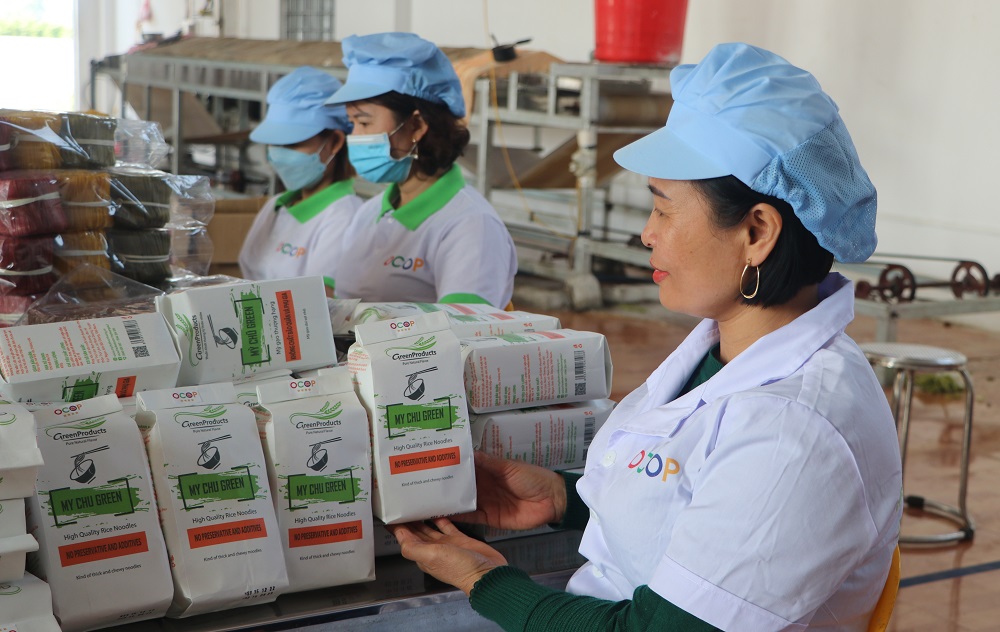
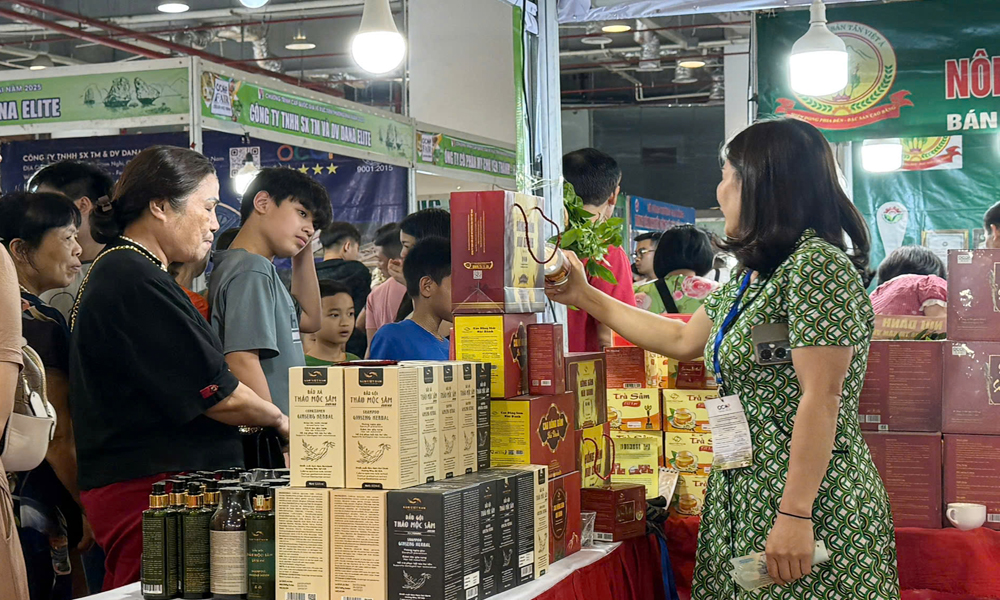
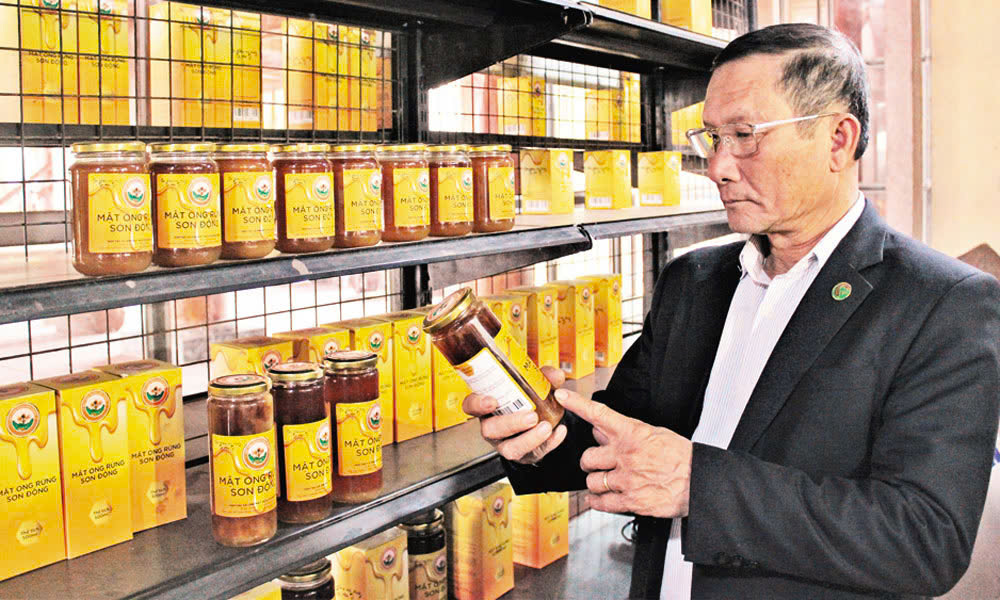
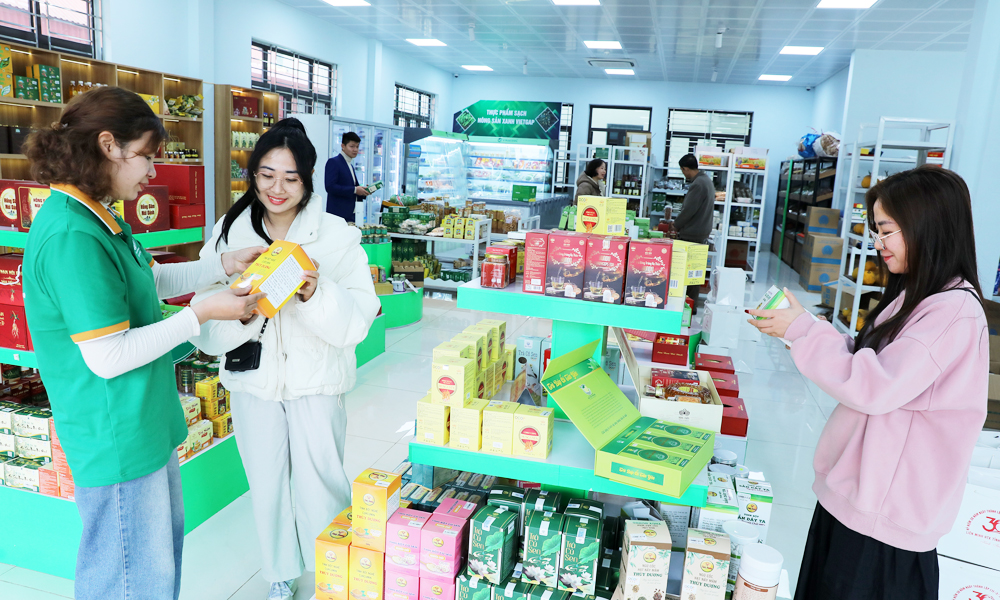
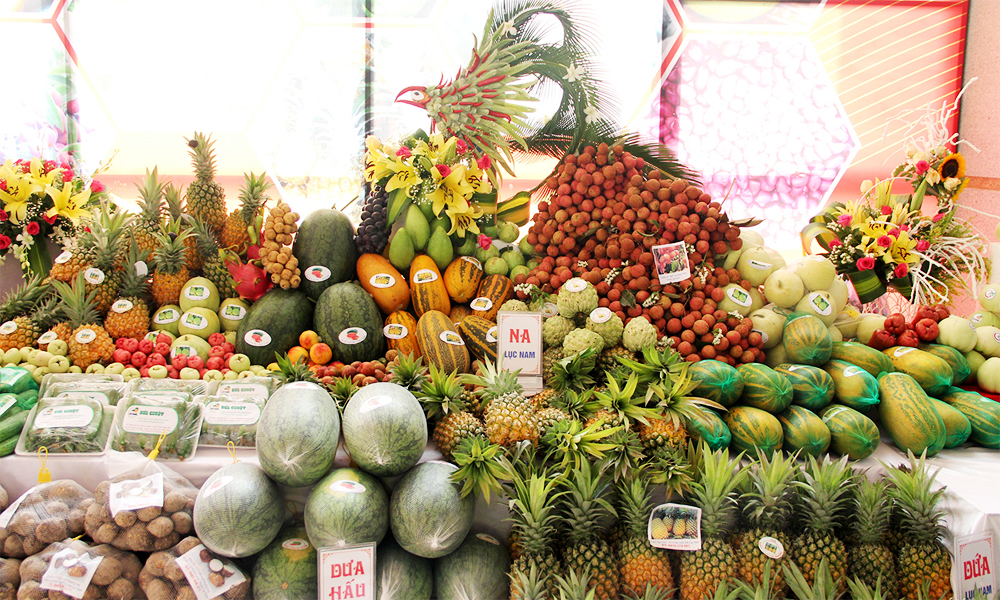
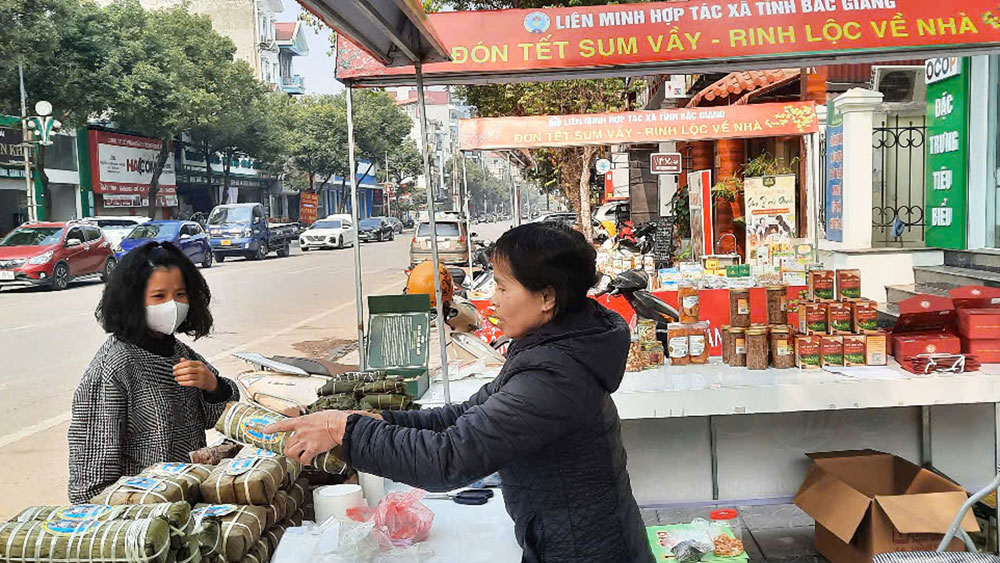



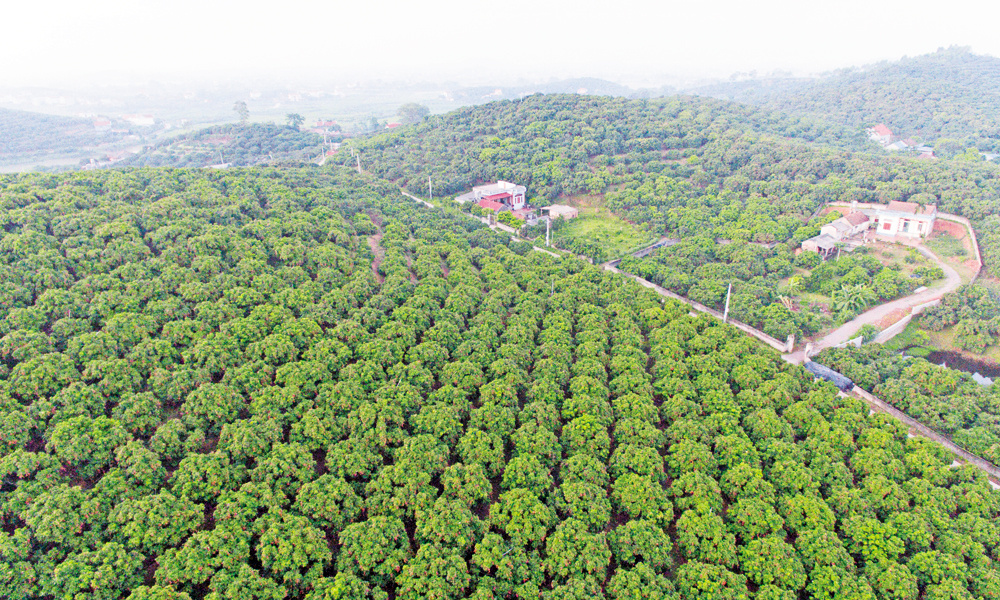



Reader's comments (0)